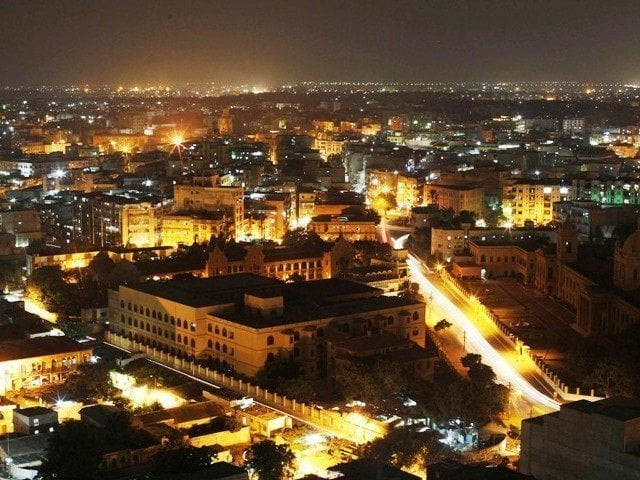City issues: ‘Barely 30% of Karachi falls in local government’s jurisdiction’
SC advocate points out that the city also comprises six cantonments and KPT

PHOTO: REUTERS
He was addressing a gathering organised at the Arts Council of Pakistan, Karachi, on Saturday to welcome the elected chairmen and vice-chairmen from all six districts of Karachi in the local bodies' elections. Since these elected representatives are powerless, there was a consensus among speakers from different walks of life regarding their powers.
"The rest of the city [is] not part of the local government," he said, referring to the areas of the city that fall under the six cantonments and the Karachi Port Trust (KPT). The cantonment boards, he said, are formed under the cantonment bylaws and, according to them, Gulistan-e-Jauhar cannot fall in the cantonment's jurisdiction. This, he said, was because the bylaws clearly state that a cantonment can be formed where serving military personnel live or their organisations work - which is not the case in Gulistan-e-Jauhar.
Mansoor shared that he was born in a small house in Nazimabad and has seen this city expand. On the importance of the local government, he said that the 1973 Constitution defined the state as provinces and the federation. Having said this, he explained that the importance of local government needs to be understood. He stressed that there are three tiers in the local government; administration, finance and opportunity for political activities, which became part of the Constitution.
Talking about the current issue of powers of the local government, he said that they were deprived of financial and administrative powers and nor do they have any political freedom. All of this, he pointed out, was against Article 48 of the Constitution.
According to him, if powers are given to the local government, the aftermath would be very dangerous. Addressing the elected representatives, he said that they will have to manage the water and sewage issues of the city since the voters have given them this responsibility by electing them. He suggested that some form of tax be collected for this purpose. He also pointed out that the provincial government was bound to provide them the required funding. "If you won't be able to work, your voters will point fingers at you," he told the elected representatives.
Journalist Mazhar Abbas shared similar views regarding the jurisdictions of the city and said that while the mayor is termed the father of the city, Karachi's mayor is the father of only 30% of the city.
Speaking on the occasion, journalist Ghazi Salahuddin said that he has celebrated the city's progress and has also mourned its conditions. "Shutting down the city is no achievement but shutting down copy culture is," he said. The physical infrastructure, according to him, is very important for any megacity but the cultural and intellectual infrastructures are equally important for a city like Karachi.
Institute of Business Administration public affairs and communication director Huma Baqai stressed the importance of education in Karachi. She said that though education does not directly fall in the domain of the local bodies, it has been revived elsewhere in the world with the support of the local community.
Published in The Express Tribune, June 6th, 2016.



















COMMENTS
Comments are moderated and generally will be posted if they are on-topic and not abusive.
For more information, please see our Comments FAQ